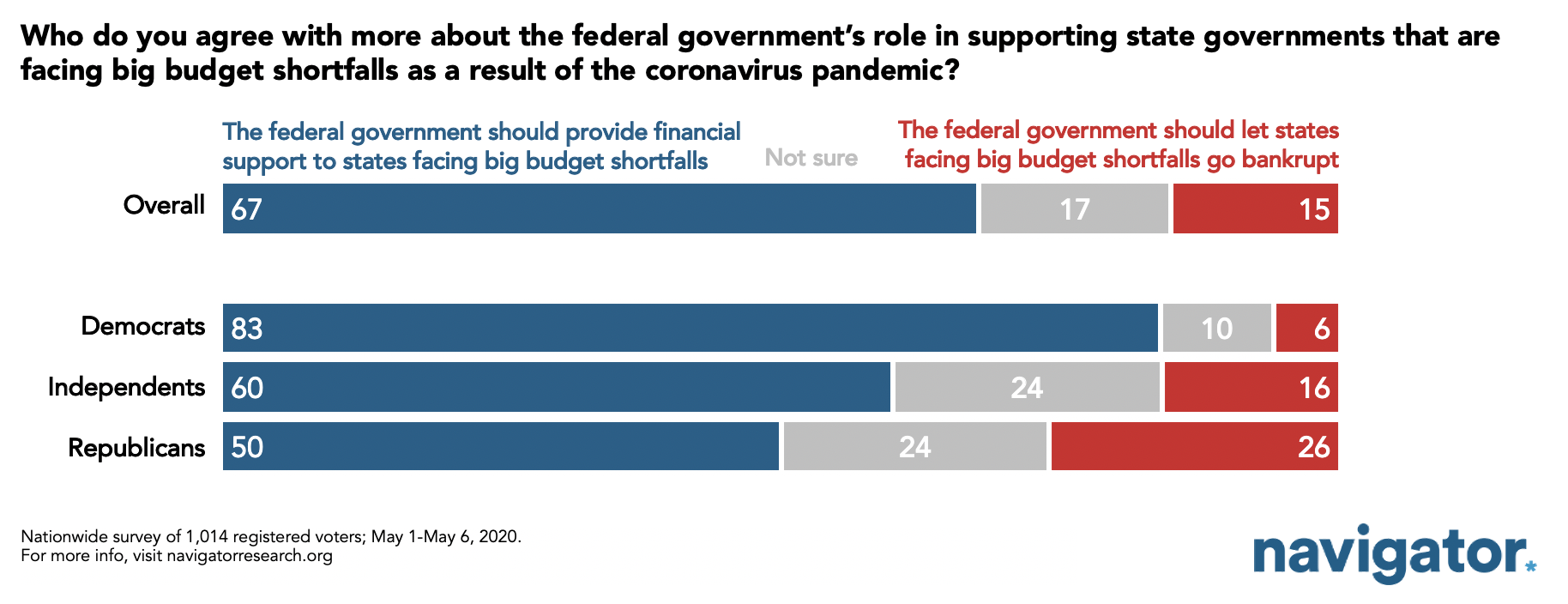Welcome to NAVIGATOR – a project designed to better understand the American public’s views on issues of the day and help advocates, elected officials, and other interested parties understand the language, imagery, and messaging needed to make and win key policy arguments.
This is a dynamic time, and as a result, Navigator will transition to a daily tracking poll on the coronavirus crisis. For the foreseeable future, we will be tracking public opinion every weekday, releasing on a Tuesday-Saturday schedule. In addition, future editions will provide more messaging guidance to the progressive community.
This edition of our daily tracking release features findings from a national online survey of 1,010 registered voters conducted May 4-7, 2020 and a national online survey of 1,014 registered voters conducted May 1-6, 2020.
Key takeaways
- As Trump’s economic approval softens, concern about the job market outweighs optimism about a stock market recovery.
- Americans prioritize helping those in need and are far less concerned about government spending and budget deficits.
- Top concerns about Trump’s economic response to coronavirus focus on stimulus money going to big corporations and not helping regular people who are in need.
Trump’s Approval Ratings Continue to Slide
Trump’s approval ratings on four metrics related to the coronavirus pandemic continue to drop.
- Among independents, Trump’s at -16 on his overall job approval (37% approve/53% disapprove), -17 on health care (35% approve/52% disapprove), -11 on handling the pandemic (42% approve/53% disapprove), and +1 on the economy (46% approve/45 % disapprove).
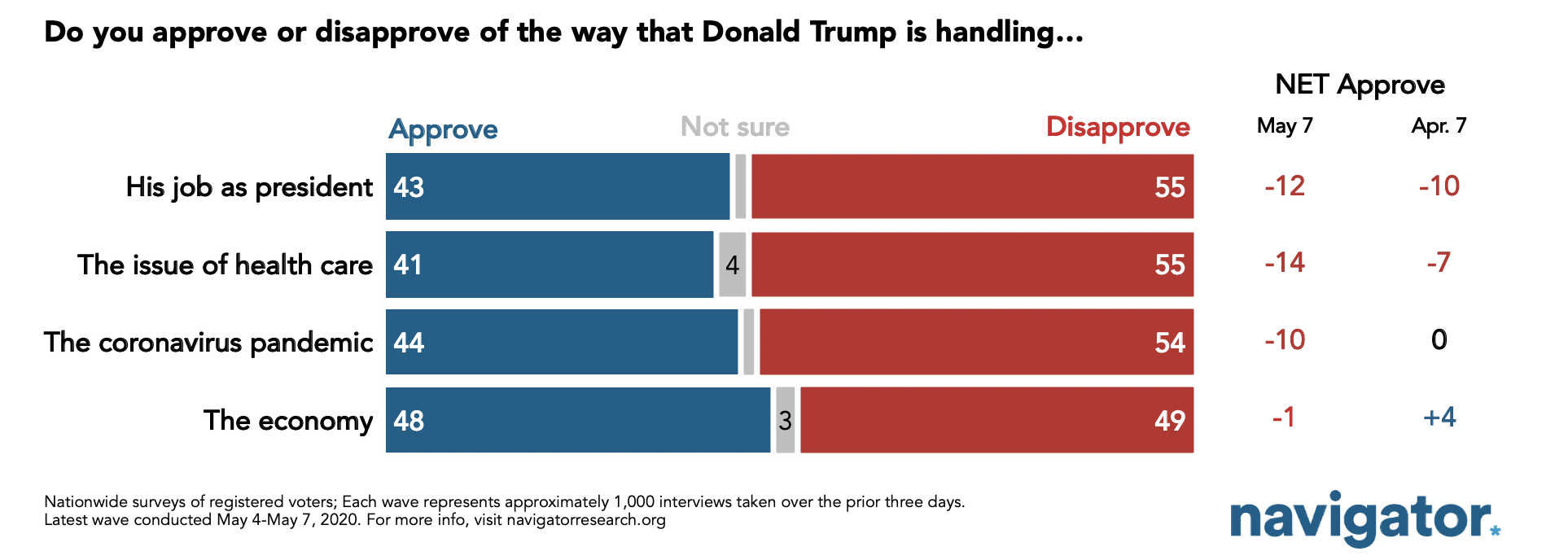
Trump’s Economic Approval Hits New Low in Daily Tracking
Trump’s approval rating on handling the economy is negative for the first time in our daily tracking.
- More Americans now disapprove of how Trump is handling the economy (49%) than approve (48%), a net change of 11 points since March 23rd (53% approve/43% disapprove).
- In January and February, Trump’s approval rating on the economy was +2 (49% approve/47% disapprove). In early March, prior to our daily tracking, it was at -3 (46% approve/49% disapprove).
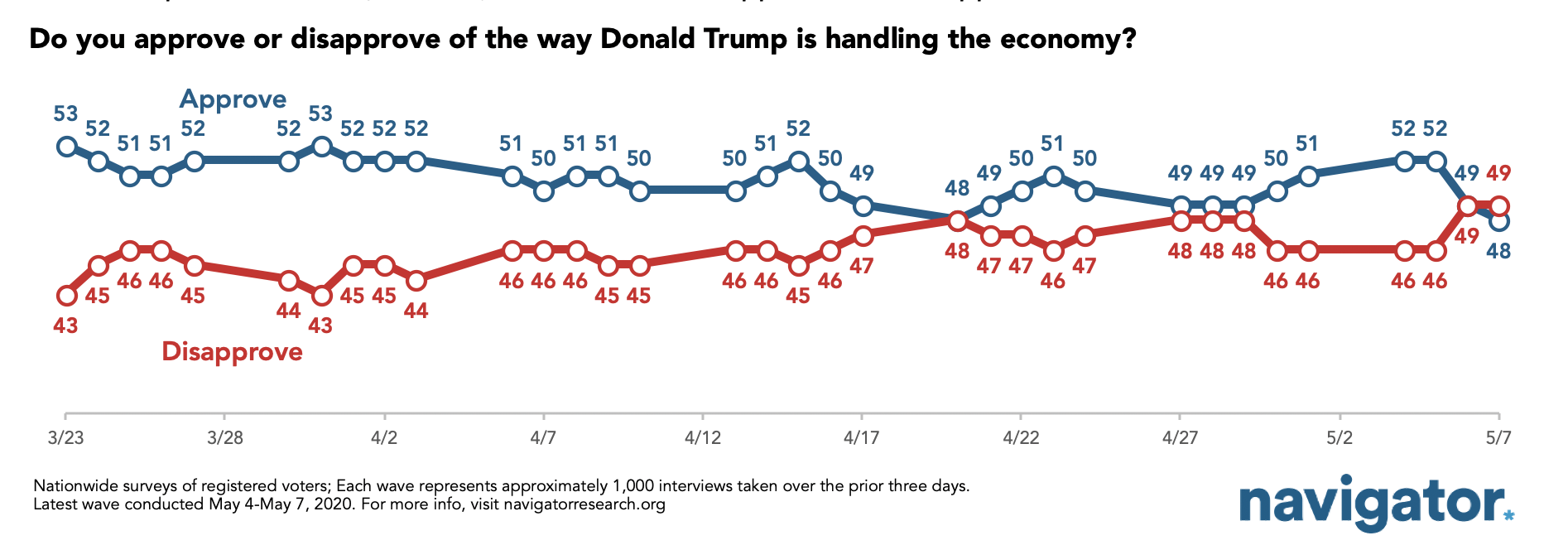
Vast Majority Rate Economy Negatively
Four in five Americans now rate the economy as “not so good” or “poor.”
- Ratings of the economy as “not so good” or “poor” first surpassed 80% on April 27 and have done so several times since.
- More than seven in 10 Republicans (71%) rate the economy as “not so good” or “poor.”
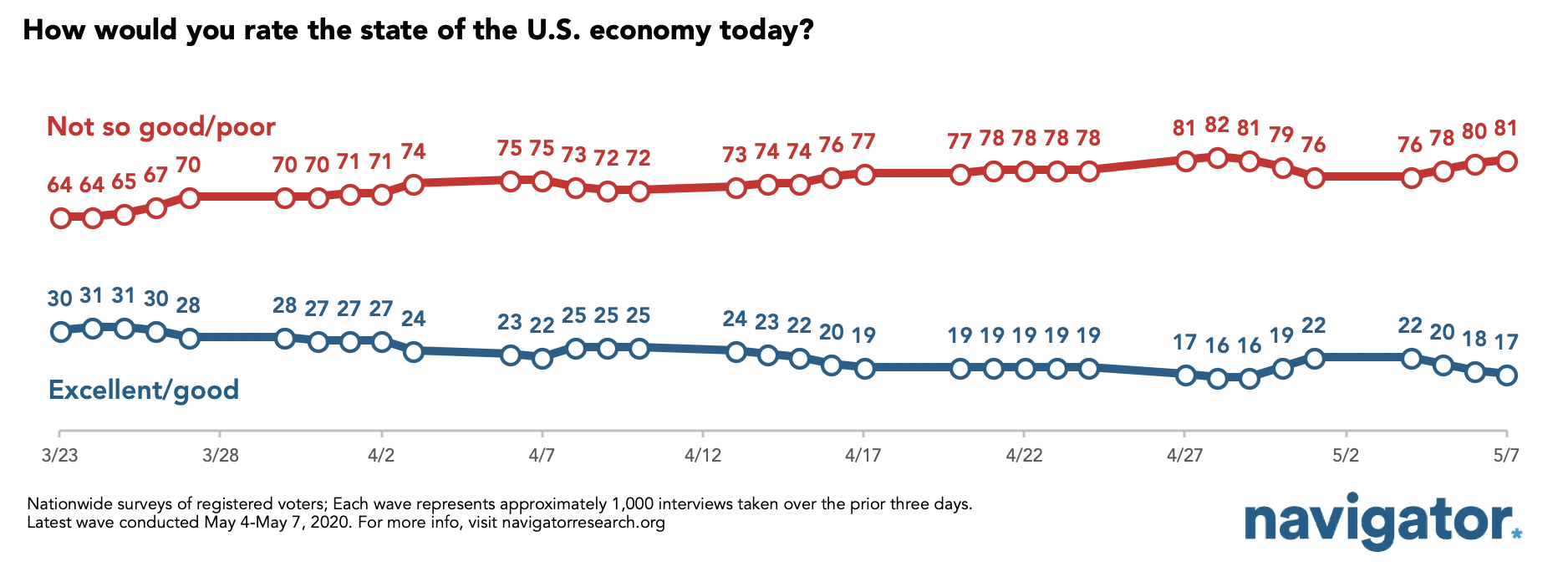
Job Loss Concerns Outweigh Stock Market Gains
A majority of Americans – including a majority of Republicans – do not feel like the economy is working well right now due to record high unemployment and many struggling.
- In a separate question, 71% of Americans rate the stock market as “not so good” or “poor” as opposed to only 21% who rate it as “excellent” or “good.”
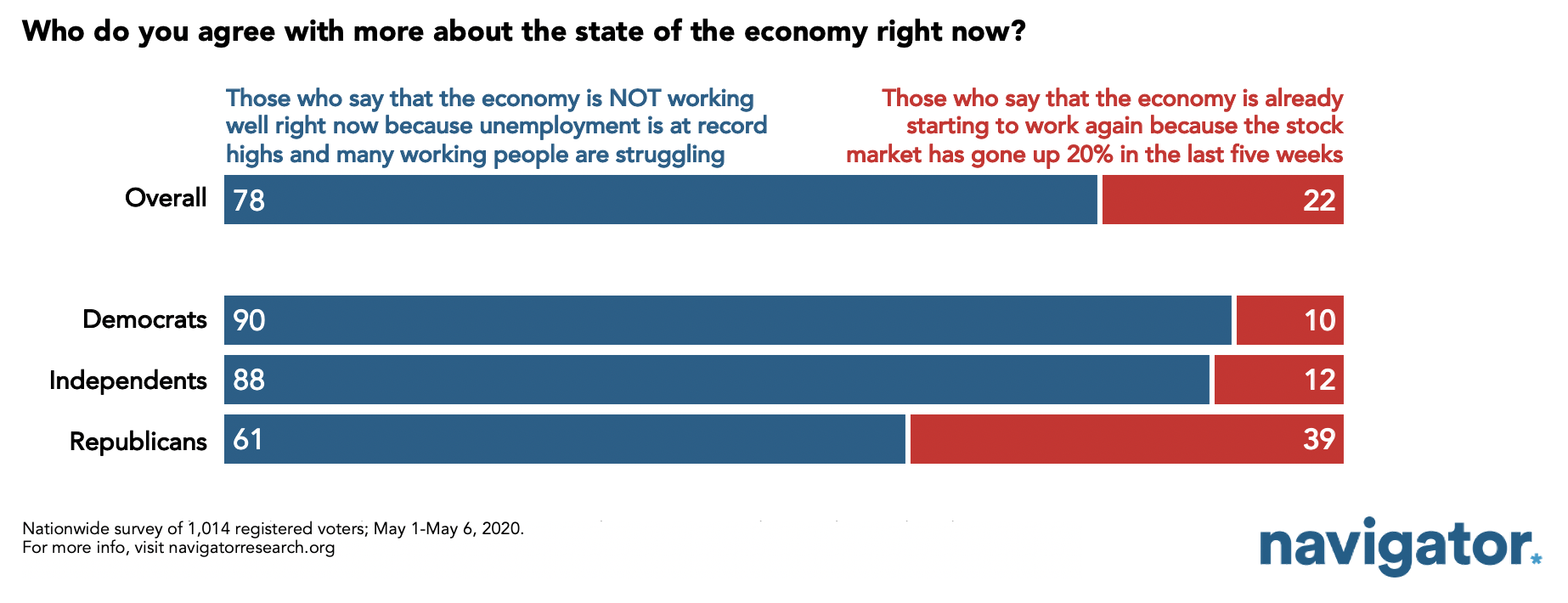
Americans Want An Active Role From Government
The vast majority of Americans agree the government needs to do more to help regular people and are more concerned the government will not do enough to help regular people, rather than spend too much money.
- Even two in five (42%) Republicans are more concerned that the federal government will not do enough to help regular people than that it will spend too much money because of the pandemic.
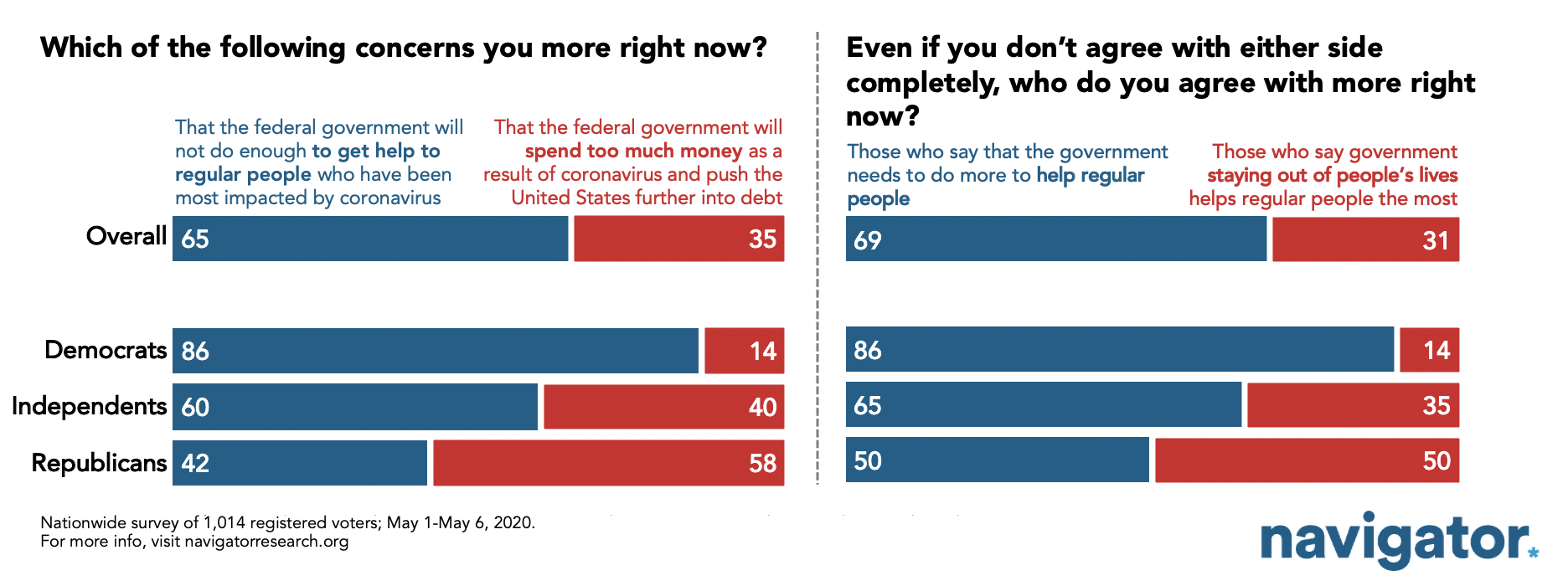
The Pandemic Has Shifted Economic Worldview
The share of Americans who say workers and everyday people are key to a strong economy over a free market and limited regulations has grown by a net 12 points since May 2019.
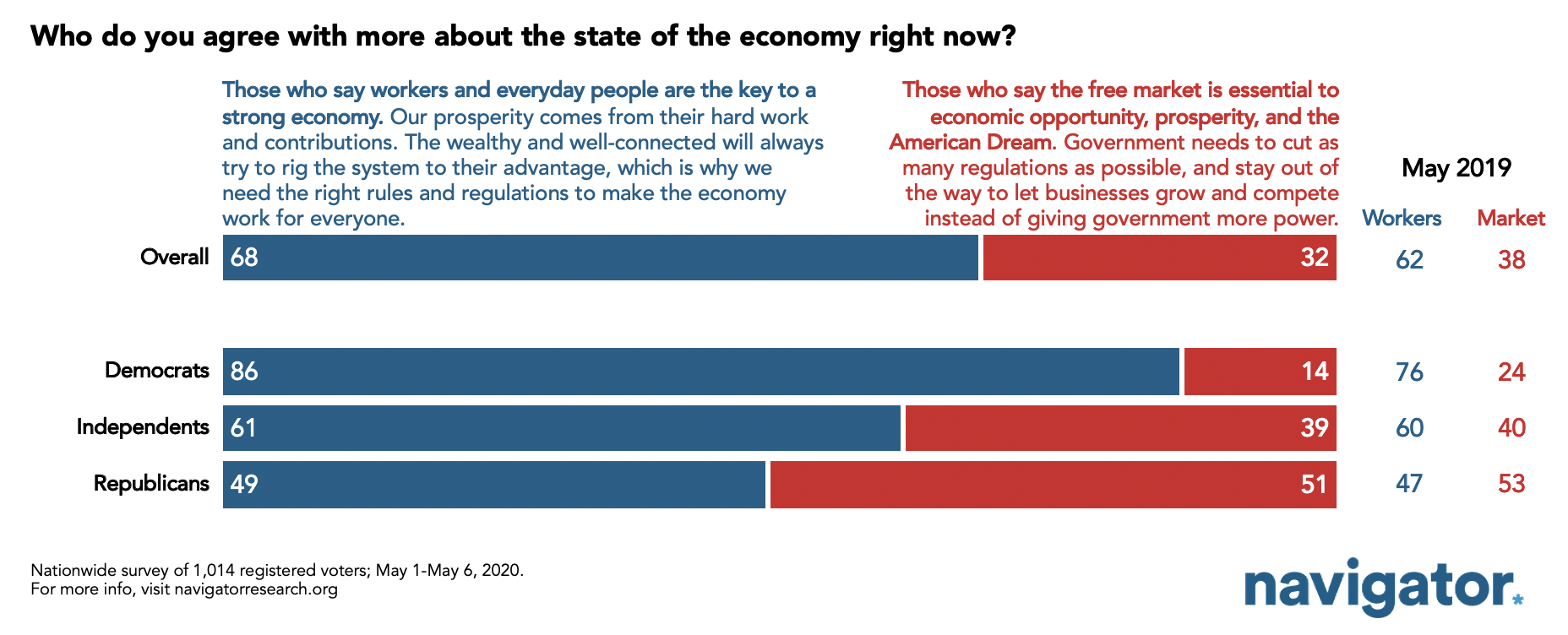
Concern Relief Going To Wealthy, Not Those Who Need it Most
When presented with a series of criticisms about Trump’s economic response to coronavirus, Americans say they are most concerned about stimulus money benefiting the wealthy and being withheld from people in need.
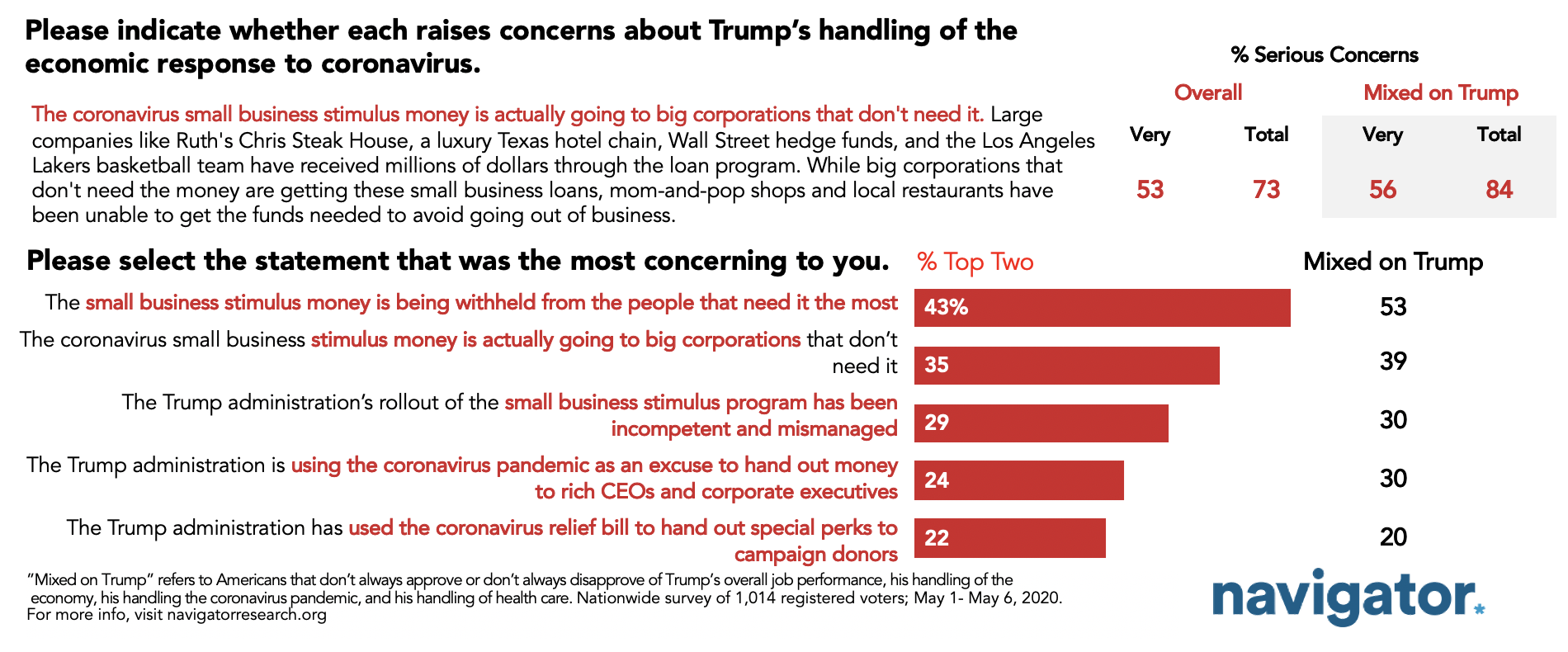
Vast Majority Oppose Letting States Go Bankrupt
A majority of Americans, including half of Republicans, believe that the federal government should not let states go bankrupt and should provide financial support.
- Likewise, the majority of Americans (57%) have more trust in their state and local government to handle the coronavirus pandemic than President Trump and the federal government.
